Holy Week encompasses extreme lows as we remember Jesus was beaten and crucified, and the brightest, incomprehensible joys in His resurrection. Herein also lies a fissure between the reality of Jesus and the expectations of humanity.
Jesus’ life is well chronicles in the Bible. His humble, miraculous birth to a virgin is told in our era as occurring in the dead of winter, the middle of a dark night so that we understand in His birth light—true, vibrant, radiant light—came into the world. Persecution shadowed him even in his youth, though the powers at the time did not know His name or His face. They knew someone had come that would threaten not only their power but the comfort of their way of life. An authority beyond imagining that would command the wind and the waves; who with a word would heal, would set souls free and raise the dead.
They hailed Him as a king on Palm Sunday when He entered Jerusalem. But they didn’t understand and it’s so easy for us to scoff at their expectations because we know. We know that He entered that city to become the Passover sacrifice. We know He would allow Himself to be taken, to be brutally beaten and to die. And even though we know, we don’t understand either.
Because those aren’t the stories we tell of godlike characters. Thor may be a mythological god, but in his modern incarnation he is merely a man who struggles with arrogance and finding a way to love. His superhuman strength sets him apart along with his ability to command lightning, to take a punch that flings him across vast distances and rise back up to return to the fight.
From Nietzsche’s Übermensch, “the pinnacle of human potentiality in terms of power and integrity,”1 we have the modern version of Superman. “Faster than a speeding bullet! More powerful than a locomotive!” which seem like such pale descriptions when Captain Marvel is colliding with spaceships.
Perhaps Superman’s greatest power, however, is his indestructibility. He crashes through walls in Man of Steel, without getting a scratch on him. He doesn’t flinch under a barrage of bullets. And he’s strong enough to hold up a falling oil rig and not be scorched by the flames.
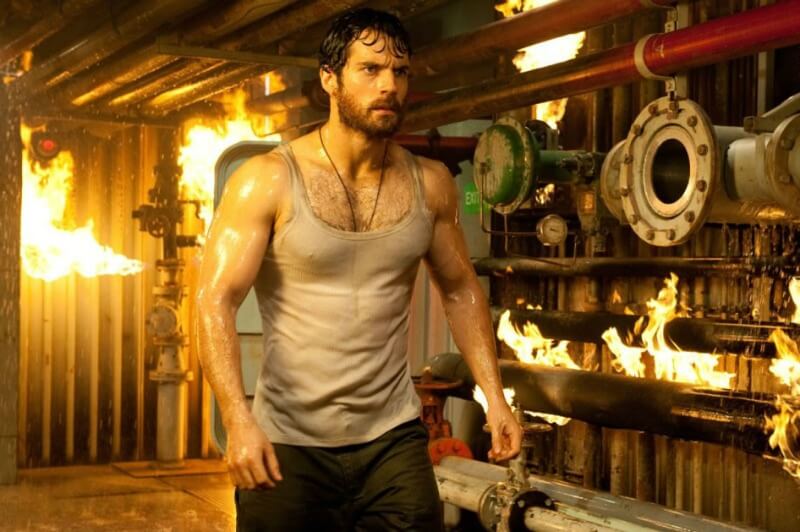
This, it turns out, is the most common characteristic of the legion of superheroes in our storytelling. Our understanding of “godlike” is their durability. Thor gets knocked around by an entire SHIELD base but never beat up. Wonder Woman traverses a battlefield of bullets and explosions without flinching. Jean Grey, Spider-man, Captain America, they don’t suffer from bruises or broken bones. Their spirits may be deflated after a defeat but they’re still on their feet; still ready to defend and save ordinary mortals.
These stories of “godlike” figures offer an interesting contrast because when God actually came to this world He wasn’t invulnerable. His flesh was pierced. A crown of thrones was forced down over his brow scraping through his skin, blood running down the side of his face. His back was lacerated to the bone.
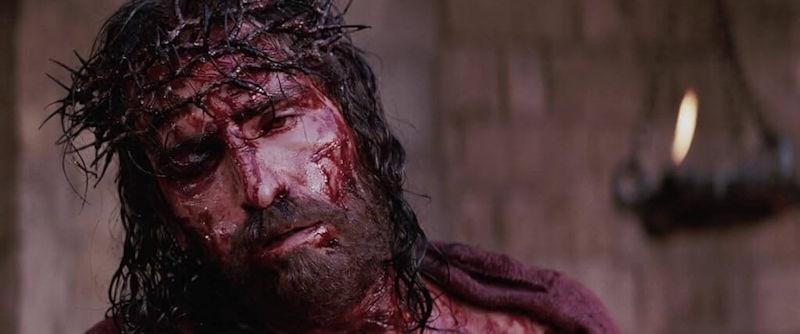
While superheroes are indestructible, Jesus could not be defeated. Because He was stronger than death itself, stronger than all the powers of hell, and yet He let death claim Him. But death couldn’t hold Him. It wasn’t that His blood couldn’t be shed but that there was power in the sacrifice His blood. Power enough to set all of humanity free.
Alex Aparecido da Costa in his examination of The Matrix observes that a savior gives “new meaning to a world.”2 Jesus, in His life and death, brought a myriad of new meaning with layers, nuances and vast profound truths, transforming our understanding of divine reality. He also brought new meaning to our idea of a savior.
We tell stories about heroes and “gods” that are powerful and indestructible because, like the Jews of Jesus’ day, we expect a savior to be a warrior. El Shaddai defined as “God of power and might. God of war”3 rather than God of provision and sufficiency. God who is enough.
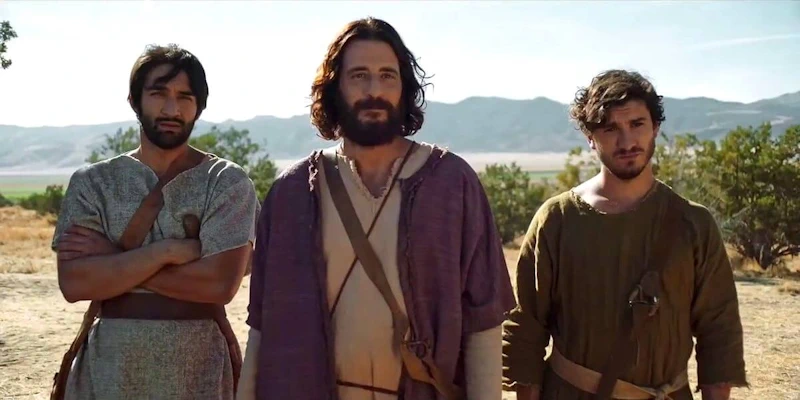
The Jews anticipated their messiah as a conqueror of evil, which of course He was but not in the way they expected. He wasn’t Captain America saving people by facing down invaders. He didn’t save people with physical power the way Samson defeated the Philistines.4
In a complete twist of our understanding, it’s by Jesus’ stripes that we’re healed. Where superheroes would be made weak by pain or injury, there is power in the wounds of Jesus. Levi Lusko’s Easter series this year is on the wounds of Jesus, because His wounds matter; not just to Him or the people of his time but throughout history.
By the shedding of His blood, we are set free from the prison of sin. He wasn’t superhuman in enduring the lashings and the piercing of His flesh. He was completely human in experiencing pain; in suffering injury. And yet, He wasn’t undone by His wounds. When He rose from the grave, He defeated death. The wounds He bears for all eternity are the mark of His victory.
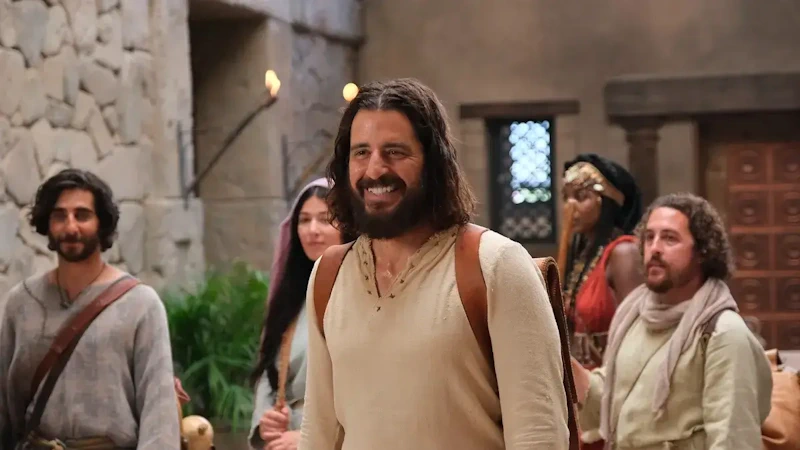
A version of this article was originally published June 22, 2013
- D’Olimpio, Laura, and Michael P. Levine. “Reluctant Heroes and Itchy Capes: The Ineluctable Desire to Be the Savior.” Journal of Aesthetic Education, vol. 53, no. 4, 2019, pp. 71–85. ↩︎
- Aparecido da Costa, Alex. “The Construction of Post-Modern Messiah in Matrix.” Verso E Reverso, vol. 27, no. 64, 2013, pp. 38–42, https://doi.org/10.4013/ver.2013.27.64.06. ↩︎
- The Chosen season 2 episode 4 ↩︎
- Judges 14-16 ↩︎
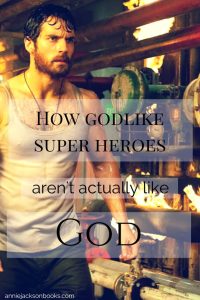
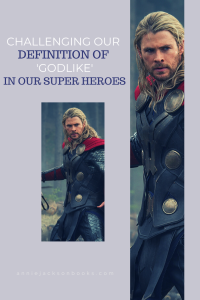
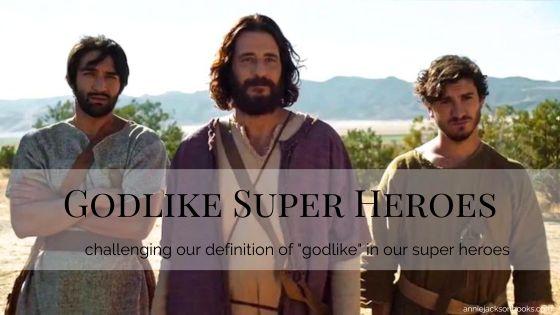
This is why I think there was an uproar about Harry Potter for a moment. We see that he is portrayed more god like than strong, indestructable superheroes.
I think that’s a good point – he was a much closer picture of a messiah figure than superheroes are. And also, when I was typing that sentence about how Christ couldn’t be defeated, it totally reminded me of Harry Potter and the big distinction she made between being killed and being defeated. But that’s a whole other blog entry – I mean, really, a successful expelliarmus spell makes the wand loyal to you? Harry must have a battalion of wands by the end.